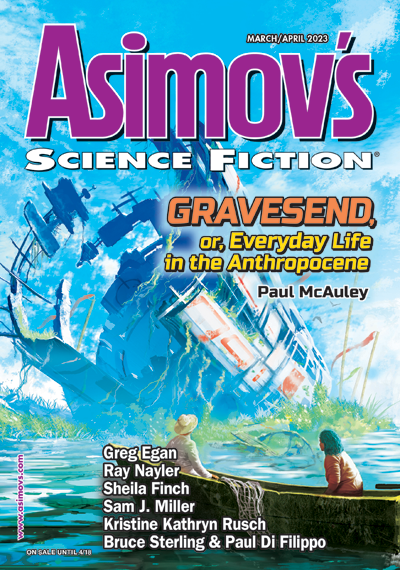The Nameless Dead by Kristine Kathryn Rusch
Rusch is known to write about a future with advanced spacefare and aliens, but where some of the injustices in todays world still lives on. I recently wrote about “The Impossibles” with that theme. In this story the narrator isn’t exactly a likeable person that wants to fight injustice - though she might end up doing just that.

The narrator is a woman who works as a private detective, sort of, on some planetary settlement. She ended up there after she left her life and family on Earth behind when she signed up for a voyage across the galaxy. She signed all the waivers on the consequences of time dilation, but it took her a while to actually understand it - and then there was no going back. Now she offers investigative services to other people in a similar situation, by going through various data sources for information on their families back on Earth where at least a 100 years have passed. She gets a big case where she is tasked with investigating hundreds of travelers, which unveils a much greater crime that she is used to dealing with.
Rusch has made an interesting choice by having a narrator that is rather unlikable. She has a lot of self-hate but no real regrets on leaving behind her son and husband. The effect of this is that we don’t really have sympathy for her in the beginning, because she just have to live with the consequences of her actions, but through her investigations we hear of people who have ended up in the same situation as her having lost their families to the effects of time dilation - except they claim to not have done so knowingly.
The emotional impact isn’t quite on the same level as that famous scene in the movie Interstellar, but the story pushes the same buttons in that regard.
Read in Asimov’s March/April 2023
Rating: 3+